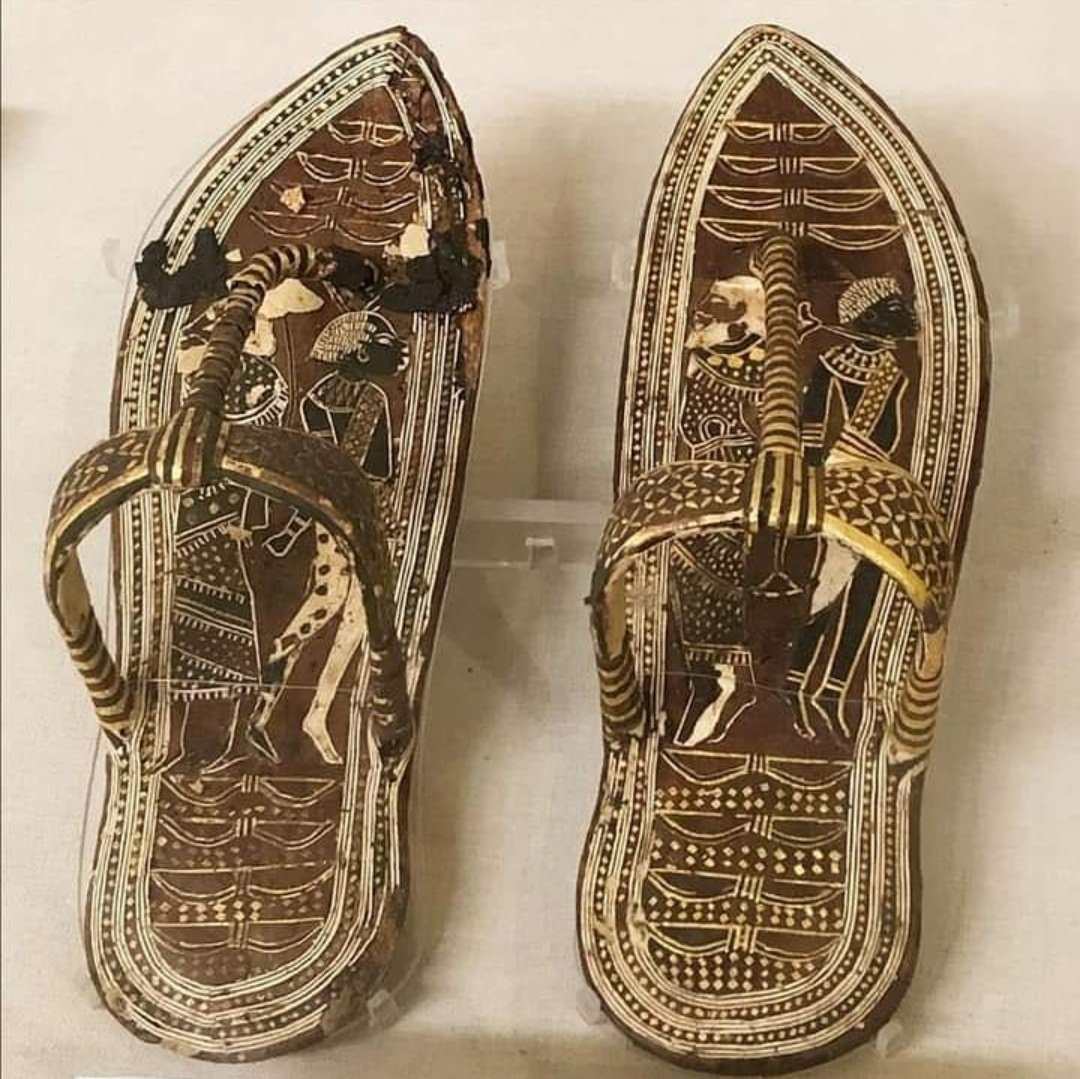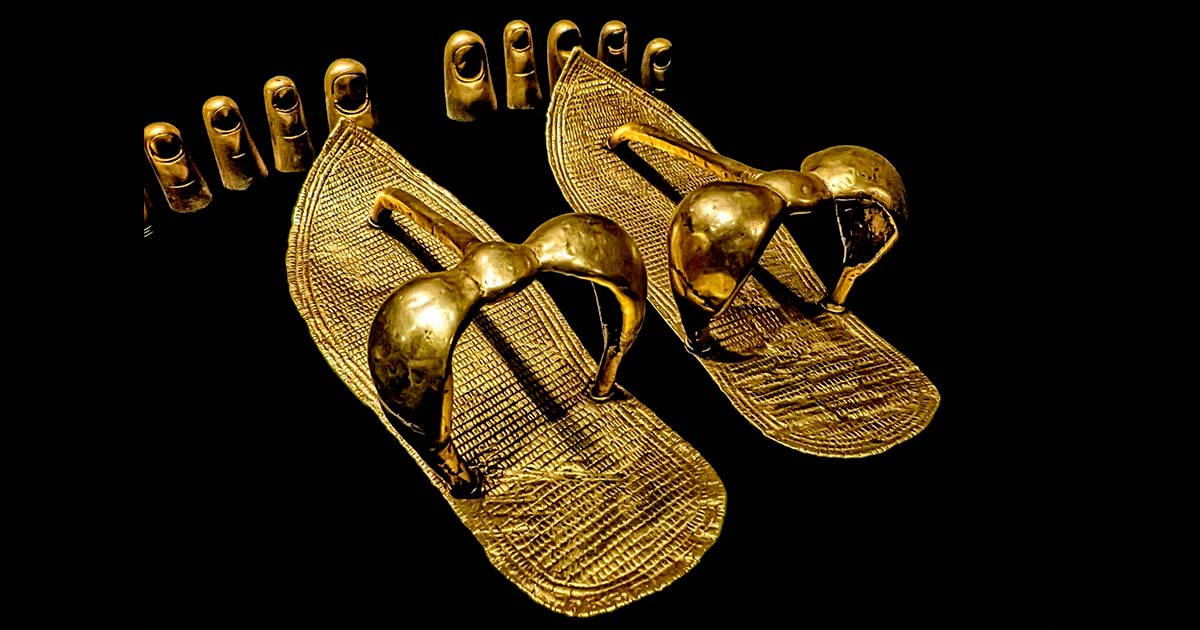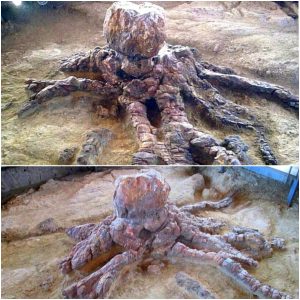Few know that the young King Tut also enjoyed a vast collection footwear. The stunning find of Tutankhamun’s tomb KV62 by Howard Carter, one of the most exciting discoveries ever made by Egyptologists, captured headlines around the world back in the 1920’s. While his golden death mask has become an iconic symbol of ancient Egypt, it was only in 2007 that experts undertook an in-depth study into the king’s footwear.
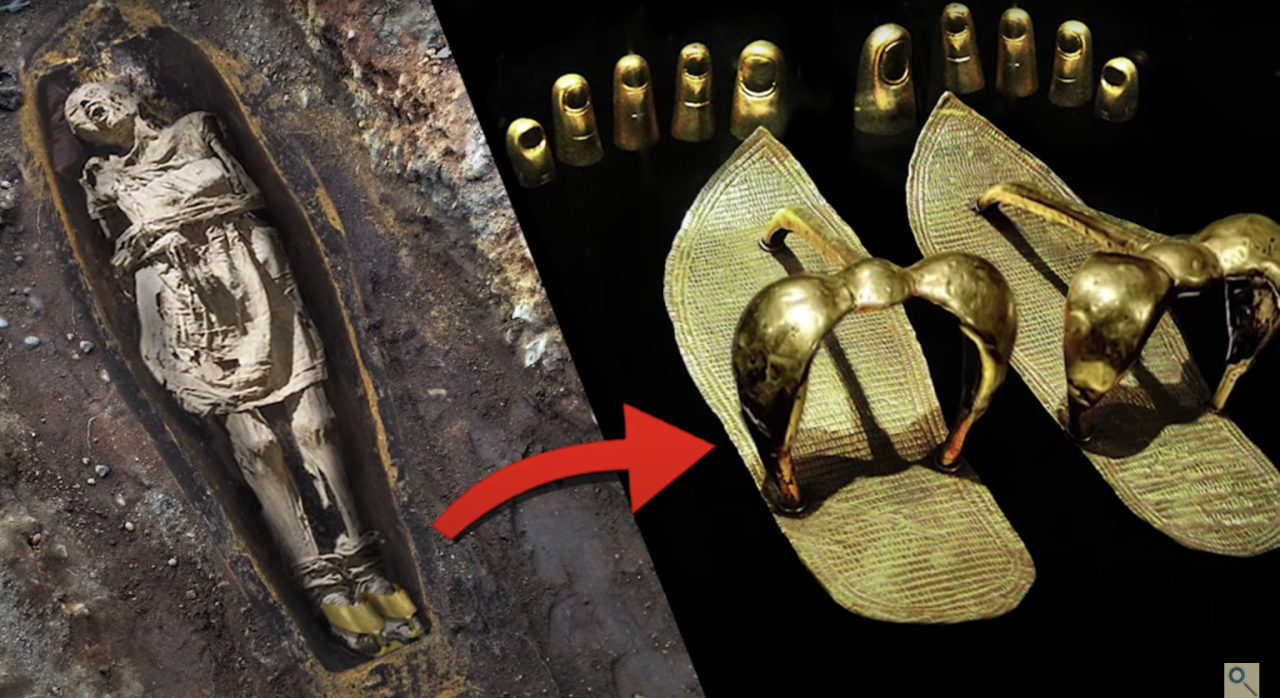
While the exact number of sandals is unclear, at least 80 samples were discovered in the virtually intact tomb of King Tut, included in order to accompany him into the afterlife. While some were discovered in surprisingly good condition, all that was left of others were small fragments of foot straps. The best preserved were the gold sandals discovered on the feet of King Tut’s mummy.
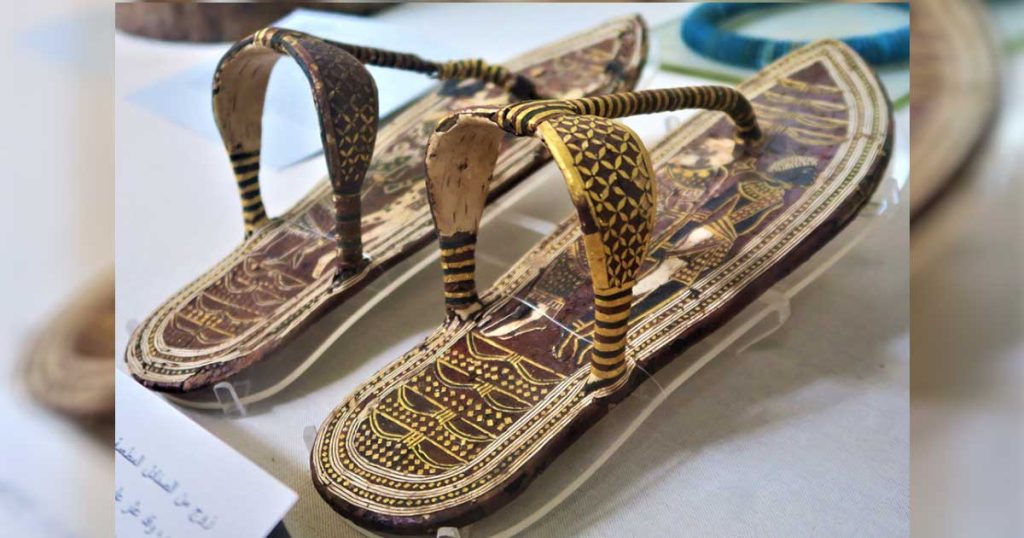
Andre Veldmeijer, a Dutch archaeologist and author of Tutankhamun’s Footwear: Studies of Ancient Egyptian Footwear, undertook the study of 81 samples housed at Luxor Museum and the Egyptian Museum in Cairo. These were all that remain of a wide variety of footwear entombed with Tutankhamun, a collection which included sewn sandals and bead sandals. At the time, these would have been a feast for the eyes, made with gold, birch bark, vegetable fibers, gemstones, leather and gold.
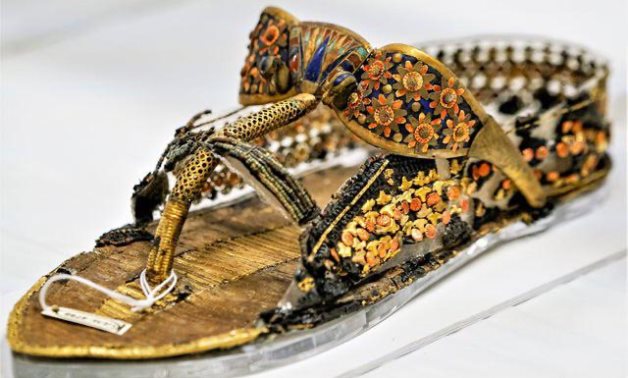
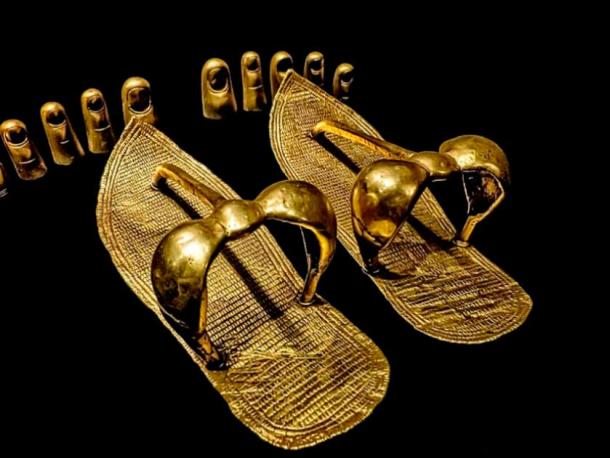
DNA tests and analysis of CT scans of his remains have revealed that King Tutankhamun probably suffered from birth defects caused by inbreeding, including a club foot and malformations in his feet which would have caused him to walk with a limp and necessitated the use of a cane. Amongst the shoe collection discovered in his tomb, three pairs of shoes were found to have horizontal foot straps below the toes which could have been created to aid his impaired walking. “These features are not known in any other footwear, sandal or shoe alike,” said Veldmeijer in an interview with Discovery News.
What’s even more surprising is the depiction of bound enemies on more than one pair of sandals included within King Tut’s tomb. While experts are unsure if these sandals were actually worn, or were merely symbolic, the inner soles of a pair of elaborate marquetry veneer sandals depict an African prisoner on one sandal and an Asiatic prisoner on the other, representing the enemies of King Tut’s kingdom. Taking into account that artistic representations were used to manifest reality in ancient Egypt, the message was quite clear. Every time the pharaoh took a step, he would have literally been stepping on the faces of his enemies.
